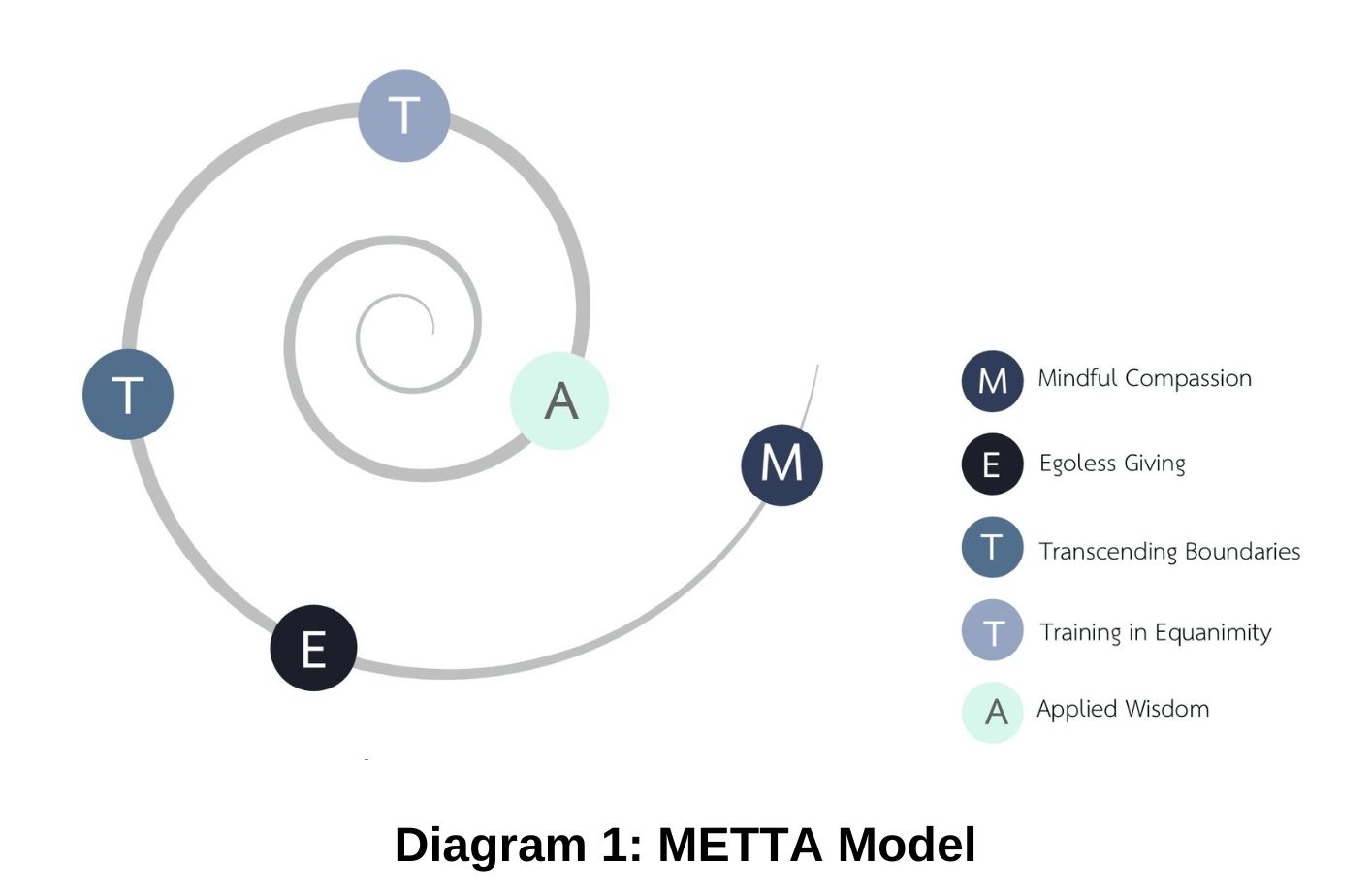Metta Parami in Theravada Buddhist Philosophy
Keywords:
Meta, Paramita, Theravada Buddhist PhilosophyAbstract
This academic article aimed to examine and analyze the practice of Metta Parami (the perfection of loving-kindness) as presented in the Tipitaka, the primary scriptures of Theravada Buddhism. The study sought to reinterpret Metta not merely as a basic virtue but as a spiritual perfection that required long-term, intensive cultivation of the mind and the transformation of self-centeredness. This article employs content analysis and philosophical interpretation based on original canonical texts.
The findings revealed that the practice of Metta Parami appeared in various narratives within the Tipitaka, especially in the Jataka tales of the Bodhisatta’s past lives-such as the Mahasonananda Jataka, the Sattigumba Jataka, and the Mahavesantara Jataka-as well as in sections of the Vinaya and Suttas where systematic methods of cultivating loving-kindness, such as in the Metta Sutta, were discussed. These examples demonstrated that true Metta Parami was rooted in pure intention, egoless compassion, and self-sacrifice for the welfare of all beings. The new body of knowledge from this study was the conceptualization of Metta Parami as a transformative moral force that could sustainably influence individuals, organizations, and society. The article proposed the M.E.T.T.A. Model, which consisted of five core components: Mindful Compassion, Egoless Giving, Transcending Boundaries, Training in Equanimity, and Applied Wisdom-offering a practical framework for cultivating and applying Metta Parami in real life.
References
ติช นัท ฮันท์. (2543). เมตตาภาวนา คำสอนว่าด้วยรัก. (พิมพ์ครั้งที่ 2). กรุงเทพฯ : สำนักพิมพ์มูลนิธิโกมลคีมทอง.
พระครูไพศาลปริยัติกิจ และคณะ. (2559). ปารมีกูฏ: การปริวรรต การตรวจชำระ และการศึกษาวิเคราะห์. พิฆเนศวร์สาร, 12(2), 84–93.
พระพรหมคุณาภรณ์ (ป.อ. ปยุตโต). (2553). พจนานุกรมพุทธศาสตร์ ฉบับประมวลธรรม. (พิมพ์ครั้งที่ 18). นนทบุรี : โรงพิมพ์เพิ่มทรัพย์การพิมพ์
พระพรหมคุณาภรณ์ (ป.อ. ปยุตโต). (2554). พุทธธรรม ฉบับปรับปรุงและขยายความ. (พิมพ์ครั้งที่ 11). กรุงเทพฯ : โรงพิมพ์บริษัท สหธรรมมิก.
พระมหาบุญเรียน ปภงฺกโร (พิลาพันธ์). (2542). “การศึกษาวิเคราะห์เมตตาแนวความคิดเรื่องเมตตาในพุทธ ปรัชญาเถรวาท”, วิทยานิพนธ์พุทธศาสตรมหาบัณฑิต. บัณฑิตวิทยาลัย : มหาวิทยาลัยมหาจุฬาลงกรณราชวิทยาลัย.
พระมหาวุฒิพร อภิวฑฒโน. (2553). การแผ่เมตตา หนึ่งแง่งามของจิตใจ. (พิมพ์ครั้งที่ 3). กรุงเทพฯ : อาทรการพิมพ์.
พระมหาสมจินต์ วันจันทร์. (2548). ฉันเข้าใจสรรพสิ่งเพราะฉันรัก. กรุงเทพฯ : สำนักพิมพ์ กัลปพฤกษ์.
มหาจุฬาลงกรณราชวิทยาลัย. (2539). พระไตรปิฎกฉบับมหาจุฬาลงกรณราชวิทยาลัย. กรุงเทพฯ : โรงพิมพ์มหาจุฬาลงกรณราชวิทยาลัย.
สถิระ ราชรินทร์. (2561). วิเคราะห์เมตตาในฐานะเป็นฐานแนวคิดภราดรภาพ. วารสาร มจร ปรัชญาปริทรรศน์, 1(2), 1-13.
สมเด็จพระมหาสมณเจ้ากรมพระยาวชิรญาณวโรรส. (2535). พุทธศาสนสุภาษิต เล่ม 1. (พิมพ์ครั้งที่ 2), กรุงเทพฯ : โรงพิมพ์เลี่ยงเชียง.
เอกชัย อุไรสินธว์. (2564). แนวปฏิบัติตามปฏิปทาของพระโพธิสัตว์ในสังคมไทยปัจจุบัน. วิทยานิพนธ์ศิลปศาสตรมหาบัณฑิต. คณะศิลปศาสตร์ : มหาวิทยาลัยธรรมศาสตร์.
เอกบุญญาวรรณ พลอยพรรณณา. (2560). การศึกษาวิเคราะห์เมตตาธรรมในพระไตรปิฎก. ธรรมทรรศน์, 17(2), 241-256.

Downloads
Published
How to Cite
Issue
Section
License
Copyright (c) 2025 Institute of Sufficiency Journal

This work is licensed under a Creative Commons Attribution-NonCommercial-NoDerivatives 4.0 International License.



